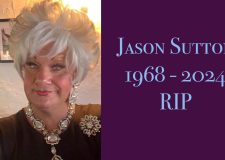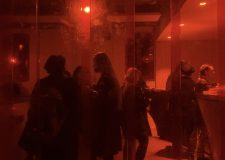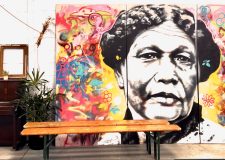Interview: Rufus Wainwright

The multi-talented singer talks opera, dilettantism, criticism & more with Joe Fuller
I’m envious that you were an opera fanatic at 13, having discovered the beauty and power of it at the age of 26 personally. Could you tell me more about your journey discovering it? For example, what did you start off enjoying and what do you enjoy in particular now? Was it a live performance or a recording that first grabbed your attention?
For me, it was a recording. I was a normal thirteen year old until one day my mother brought a recording of Verdi’s Requim with Leontyne Price and Jussi Björling to the house and we listened to it from top to bottom and by the end I was a complete and utter opera fanatic so it was really that recording that and that piece specifically that changed my life in the span of two hours. Like any intense art form it devours you swiftly.
How did you go about composing Prima Donna, and how did it feel releasing it on Deutsche Grammophon?
Well, I composed Prima Donna over the span of about two or three years and I was heavily involved in all the aspects of creation. I wrote the libretto and building the drama and so forth. I basically dedicated all of my energies to what it takes to write an opera, which was good at that period because my mother’s health was starting to decline so it gave me a chance to focus my energies elsewhere as opposed to the tragic events that were occurring before me. So, a lot of passion and sadness, triumph and joy and darkness went in to the piece. And then to see it being released on Deutsche Grammophon with that iconic label and working with the BBC symphony and the great Scottish Soprano Janis Kelly has been my greatest dream come true!
You’ve mentioned previously how the classical establishment sees you as a “usurper” and “dilettante”, does this bother you? Do you think that the establishment should be more open to trying new things and reaching a wider audience?
No, it doesn’t bother me. It definitely takes a bit of hardening at the outset to handle the attitude, but you realize eventually intense criticism, especially in the world of opera, is very much part of the tradition of that art form. At one point a Verdi critic said to Verdi that Rigoletto had no tunes in it so needless to say the path is strewn with wrong views and it’s really one hundred years down the line when the real story comes out…so both the critic and I will be dead so who cares? [laughs]
What would count amongst your favourite opera performances you’ve seen?
I saw Karita Mattila sing The Metropolis Case in San Francisco a few years ago…that was riveting. The other night I saw Elektra at The Met with Nina Stemme… that’s right up there as well. There’s about a hundred others, that’s why I love opera.
Have you ever been to Glyndebourne, and if so, what did you make of it?
I haven’t been to Glyndebourne yet actually. It’s interesting because my dramaturg who I am working on the new opera with, Cori Ellison, she works at Glyndebourne and there’s another singer there this season who wants to meet me…so Glyndebourne is definitely calling and I’m very excited to come at some point.
Who are your favourite composers and why?
Verdi has always been my favorite. I love both his music and his career. I like how he handles the public and the press and the establishment and did what he wanted to do as a human being and at the same time constantly deepening in his work becoming more and more classical as he went along. I feel like I’m a Richard Strauss baby. I seem to always gravitate towards Richard Strauss. So Verdi and Strauss I’d say are my two favorites.
Both the critic and I will be dead so who cares?
Can you tell us more about Take All My Loves? Was the idea to raise awareness of the sonnets in Shakespeare’s canon? Was there a choice to be made between classical and pop arrangements for the tracks?
No, there was no direct choice made. The album came about very organically because I had started very early on writing music for one of the Sonnets [29] “When in disgrace with fortune and men’s eyes” almost fifteen years ago for Michael Kamen for Rada benefit. So it started with that and then I went to work with Robert Wilson for the Berlin Ensemble. I wrote the music for about ten of them there and then I put some of them on Lulu. So by the time it came around to make the record a lot of the Sonnets had already taken on their proper personas…personnets [laughs] and we just sort of had to deliver the best versions.
How is your upcoming second opera about Roman Emperor Hadrian going? Will that be taking up all your time over the next few years or do you have any other projects in the pipeline?
Hadrian is going great! I’m working on it right now as we speak. Chugging along and very excited about it. I’m a little nervous, too as anyone should be if they’re choosing to try to conquer Rome with music. So, wish me luck!
Have you spent much time in or around Brighton on previous tour stops?
I’ve been to Brighton many times. It’s always been one of the highlights of my European journeys. I could live in Brighton, frankly. It’s such a lovely place.
What can the audience expect at the Dome, will it be a mix of opera, pop, Judy Garland and the Shakespeare sonnets?
You know? It will be. I can say that for sure this time. I will be performing some Judy songs because I’m trying to gear up for that concert and having released the Sonnets recently I want to plug that record and I’m always “operaing” it up…I’m always doing the operation. So that’s what it’ll be.
Is there anything else you’d like to discuss or mention that I’ve daftly not asked myself?
See you on the shore!
Rufus Wainwright, Concert Hall, Dome, Sat 4 June
http://brightondome.org/event/9364/rufus_wainwright/




















